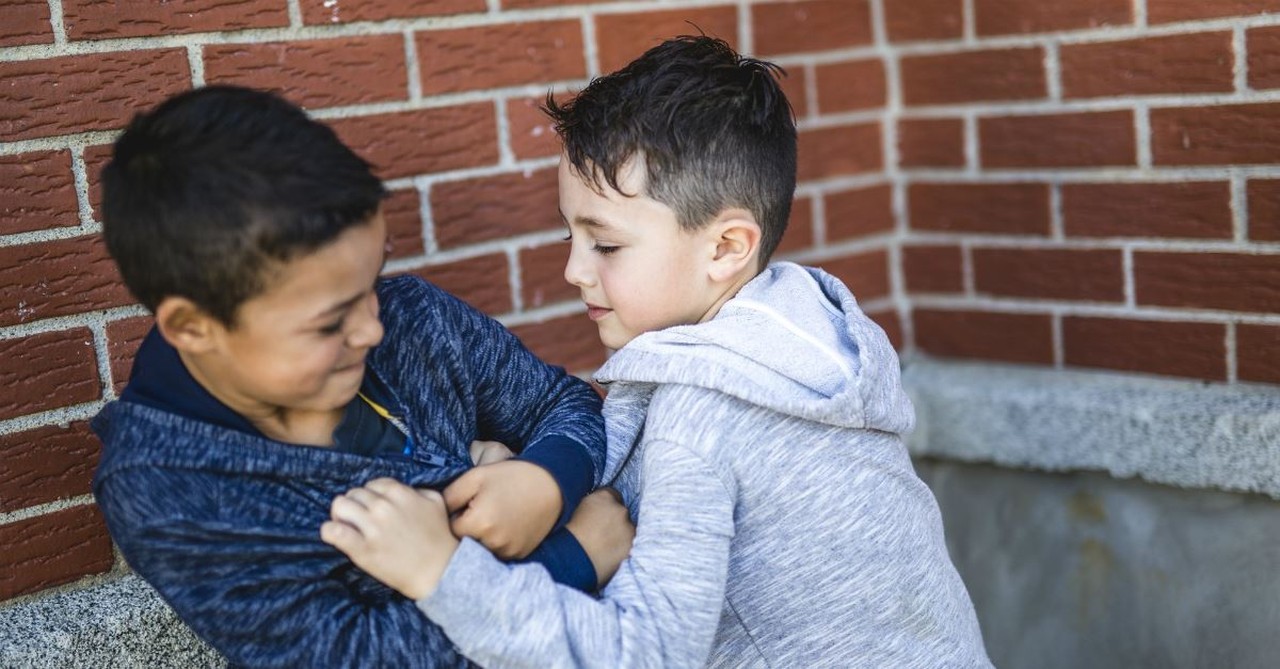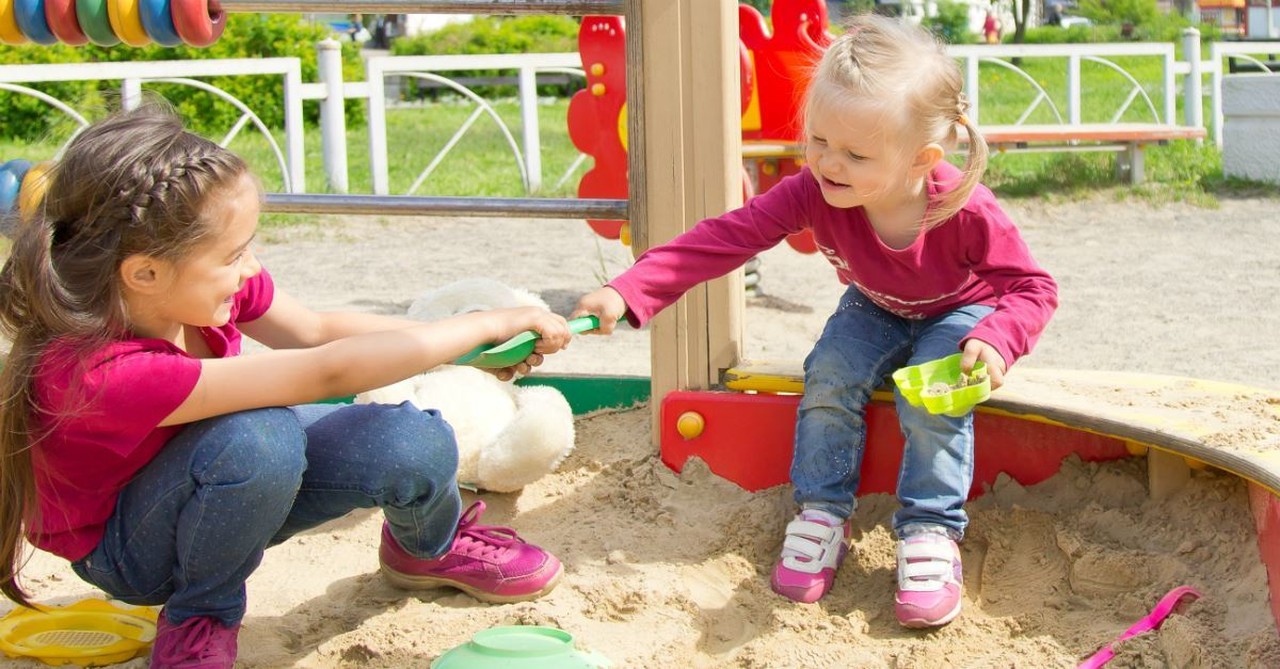Four Signs Your Child Is Being Affected by Media Violence

"Your eye is a lamp that provides light for your body. When your eye is good, your whole body is filled with light. But when it is bad, your body is filled with darkness. Make sure that the light you think you have is not actually darkness. If you are filled with light, with no dark corners, then your whole life will be radiant, as though a floodlight were filling you with light."
But, I can’t always guard their gates. Media violence is everywhere: video games, commercials, movies, television shows, and music. It seems that nothing is safe or sacred for our children.
A study by the Kaiser Family Foundation of more than 2,000 children, ages eight to eighteen suggests children are spending an average of 7.5 hours on media a day. What is this doing in terms of media violence? How do you know if your child is being affected by media violence? Here are four signs.
Photo Credit: ©Getty Images/ихаил Руденко
Your child is more aggressive.

Your child is more aggressive.
SLIDE 1 OF 4
My daughter, Tori Grace had just finished an episode of Power Puff Girls before I carted her off to the park for fresh air. Within 20 minutes, I found myself apologizing to a little boy’s dad. I watched in utter disbelief as Tori grabbed the boy by the collar of his shirt and yanked him off a dolphin seat. It was the same move she witnessed in the cartoon!
I profusely apologized to the father as I mentally added Power Puff Girls to the list of banned cartoons in our home. If your child is becoming more aggressive, review their media and take note of the shows, video games or other media influences.
We’re reminded in passage after passage to model Christ’s behavior especially when it comes to our children. Jesus is compassionate, gentle, sovereign, and full of mercy. James 1:19 reminds us to be quick to hear, slow to speak, and slow to anger. Matthew 5:9 reminds us “Blessed are the peacemakers for they shall be called sons of God.” Modeling Christ’s behavior is one of the filters that parents like myself use as we choose what our kids can watch. So what questions are you asking yourself if your child seems to be acting differently?
Is your child is pushing, shoving, or fighting at school or with his or her siblings? Is he or she act out after witnessing the news or after a violent scene in a movie or show? If his or her behavior isn’t the norm, chances are it may be a good time to review what he or she is watching or playing.
Media violence can encourage children to learn aggressive behavior and attitudes. Six decades of research suggest the effect of media violence can have a negative effect on a child’s behavior. Craig Anderson, a professor of Psychology at Iowa State University studied the effect of media violence on children in seven different cultures. The results indicate the effects do cause an increase in aggression across all cultures. “This is strong evidence that the main psychological processes that cause repeated media violence exposure to lead to increased aggressiveness are essentially the same across cultures, at least during normal times,” Anderson said.
Photo Credit: ©Getty Images/LSOphotos
2. Your child seems desensitized to acts of violent behavior.

2. Your child seems desensitized to acts of violent behavior.
SLIDE 2 OF 4
One recent afternoon I was in the car pool line to pick up my son from middle school. I was shocked to witness an older brother aggressively shove and trip his sister. Their mother didn’t seem to care nor did any of the students who witnessed the event. Students walked by her as if she were invisible. No one seemed to react or care about what they had just witnessed. I prayed in that moment for God to give children of this generation tender hearts including my own.
As much as we pray prayers of protection over our children, they will no doubt be exposed to some sort of violence in their schools, communities and homes. Exposure to violence in the media has been linked to emotional desensitization and desensitization to violence which likely contributed to the passive reactions I witnessed that day in the car pool lane.
The American Academy of Pediatrics says the evidence is overwhelming and clear: media violence is linked to real life violence and aggression. Recent studies have also shown children model what they see. A study conducted by Psychologist Albert Bandura found children who watched adults be aggressive with play toys were more likely to be aggressive with other children during play time. He also found they were more likely to hit playmates and disobey teachers after watching violent cartoons.
In other words, if your child is insensitive, callous, or lacks an emotional response, your child may be watching too much violent scenes the media. Another issue that may arise is that your child may become less talkative. Lori Wildenberg, a licensed parent and family educator and author of her latest book, Messy Parenting says communication is key. It can lessen the effects of media violence. In her blog she writes"The impact and even the allure of the negative images influence will be lessened if it’s talked about with your child."
Photo Credit: ©Pexels/rawpixels.com
3. Your child lacks empathy.

3. Your child lacks empathy.
SLIDE 3 OF 4
I remember vividly teaching my son as a toddler empathy and compassion after he smacked his baby sister with a truck. In order for him to understand, I over exaggerated the look of hurt on my face as I said. “You gave sister an ouchy” until he understood he had hurt his sister. He then hugged her as if to say he was sorry, a touching example of empathy. As Elijah grew into adolescence the examples and opportunities to model empathy never seemed to be in short supply all the while praying God would continue to keep his heart tender.
What is empathy? It is defined as being aware of, sensitive to or the action of understanding feelings, thoughts, and the experiences of someone else. If your child doesn’t seem to be able to display compassion for someone who has been harmed either in real life or in the media, he or she lacks empathy. The Bible is clear Christ has shown us great empathy and compassion through his actions of taking our place on the cross. Exposure to violence not only desensitizes people to violence but decreases empathy. After watching too much violent movies or playing video games, people are less likely to show empathy in their behaviors, for example, helping someone who has gotten hurt.
Photo Credit: ©Getty Images/Zabavna
4. Your child seems fearful, anxious, or has night terrors.

4. Your child seems fearful, anxious, or has night terrors.
SLIDE 4 OF 4
Remember watching movies like Jaws in the local pool or at church camp? Were you able to stay on your floatie or were you anxious to get out of the pool? What about Monsters, Inc.? Did you check your closets or look under the bed? Fear is another result of media violence.
We encountered the fear of Jaws after Cheyenne returned from church camp one summer. She grew anxious at bedtime or if we were spending an afternoon at the lake. After prodding her for some time she finally opened up about watching the movie Jaws in the pool. For two months we talked through her fears and prayed over her every night (after checking under the bed of course).
The Center on Media and Child Health says, “There is a growing body of evidence that today’s constant flow of media messages can produce fear and anxiety in children. Frightening and sensational images on TV, film, social media, and video games can alter a child’s view of the world, affect their sense of well-being, and influence their decision-making."
A 2016 study found those who witness violent movies before bedtime were 13 times more likely to have violent dreams that night. Whether it’s Looney Tunes or Disney, a cast of villains or heroesin the media it can frighten and confuse children. In some cases, these fears or anxieties can last into adulthood.
If your child is anxious, start a conversation. Ask them about media they may find confusing or disturbing. “While it is almost impossible to escape our children being so exposed to violence in the media, it is possible to have positive discussions with them about the value of human life and how destructive and real violence is to the body, spirit, and soul,” says Michelle Neitert, a licensed professional counselor, clinical director and mother of two.
These feelings can also be reduced when parents set limits and introduce rules for media use. The common thread among all the signs that your child may be affected by media violence is what they are watching. As parents, we can help them guard their gates and reduce the effects of media.
Photo Credit: ©Getty Images/Nadezhda1906
Heather Riggleman calls Nebraska home (Hey, it’s not for everyone). She writes to bring bold truths through raw faith from marriage, career, mental health, faith and relationships, to celebration and heartache. Heather is a former national award-winning journalist and is the author of Mama Needs a Time Out and Let’s Talk About Prayer. Her work has been featured on Proverbs 31 Ministries, The Today Parenting Team Blog, For Every Mom, MOPS, Today's Christian Woman and Focus On the Family.You can find her at www.heatherriggleman.com
Originally published April 04, 2019.






